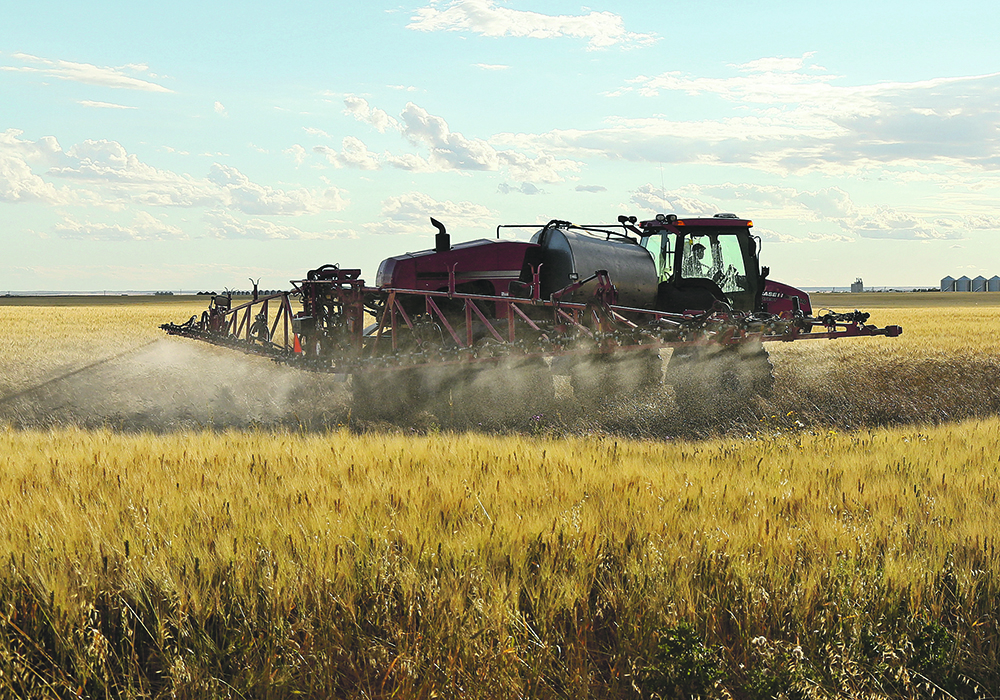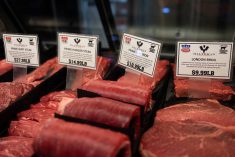There is concern Mexico is shifting agricultural policies toward the European model that can be based on ideology
WINNIPEG — Canadian farmers avoided what could have been a nasty trade dispute with Mexico earlier this year, when that country was planning to ban use of glyphosate on April 1.
Its decision could have prohibited any glyphosate residue in oats, canola and other crops that Mexico imports from Canada.
Days before April 1, Mexico’s government delayed the ban because there isn’t a suitable replacement for the herbicide.
Read Also

Pakistan reopens its doors to Canadian canola
Pakistan reopens its doors to Canadian canola after a three-year hiatus.
That avoided a trade battle between Canada, the U.S. and Mexico over the safety of glyphosate — for now.
The close call illustrates the value of maximum residue limits for pesticides and why countries need to co-operate on MRLs.
If nations can’t agree on safe levels of pesticides in grain, fruits and vegetables, agricultural trade becomes more complex.
That’s why the Inter-American Institute for Co-operation in Agriculture is holding a Sept. 10 workshop in Ottawa about harmonized MRLs.
The institute, as noted on its website, promotes co-operation between 34 countries in the Americas to “achieve agricultural development and rural well-being.”
The event will focus attention on the importance of MRLs and “maybe broadening the co-operation tent,” said Pierre Petelle, president and chief executive of CropLife Canada, which will participate in the workshop.
“Part of the work is to make sure we have as much alignment as possible in the Americas.”
Canada and the U.S. co-operate on pesticide residues because they have similar rules and procedures, Petelle said.
For years, Mexico deferred to American MRLs and adopted U.S. standards for residues on corn, soybeans, apples and other foods.
But after the 2018 election of Andres Manuel Lopez Obrador as president, the Mexican government became more hostile to ag technology.
There is concern that Mexico is shifting policies toward the European model, where agricultural rules are sometimes based on ideology rather than scientific evidence.
For instance, in 2023 Mexico banned the use of genetically modified corn in tortillas and dough. Canada and the U.S. oppose the ban.
“The measures taken by Mexico are not scientifically supported and have the potential to unnecessarily disrupt trade in the North American market,” says Global Affairs Canada.
The GM corn dispute is a reminder that agreements on agriculture and trade can go off the rails, even between friendly nations.
If Mexico or another country in the Americas prohibited the use of glyphosate, the ban would have much wider implications, Petelle said.
“(If) they ban a product for their growers and the growers say, ‘well, if we can’t use it, we don’t want Canada using it’.”
Co-operation between countries in the Americas, from Argentina to Canada, is essential to maintain some consistency in agricultural policy and avoid multiple different rules and standards, Petelle said.
“Our fear… is where you end with a system where a lack of MRLs … or deliberate removals of MRLs, becomes a trade barrier for countries like Canada.”
The workshop on food system narratives and advancing trade through harmonized MRLs will be held at the Canadian Agriculture and Food Museum in Ottawa.
















